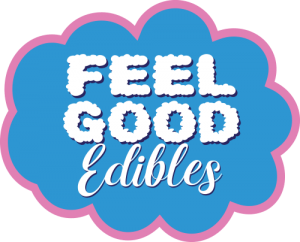CBD, “Medicine,” and Consumers
On a recreational belief, CBD may be called anything from snake oil to a cure-all medicine. However, most use it for pain or to ease tension. Stress is rampant today, especially with how fast the internet can move information, and many people openly feel the pressure.
CBD is, in no uncertain terms, a cannabinoid capable of, as the National Library of Medicine states, “anti-inflammatory and antioxidant properties.” Pain management and tension alleviation are two of the most valued parts of CBD. And, when it comes to seeking relief, CBD claims and CBD-related drugs try to take the high road. However, legally, CBD’s actual title of medicine vs. supplement vs. whatever-you-choose-to-call-it is far more complex.
To be considered a medicine, a drug must have at least some kind of medical use. CBD is currently approved for at least one FDA-approved treatment. Epidiolex is one such drug, a CBD-based medicine used for treating epilepsy and epileptic seizures. However, just because CBD assists with one form of medical issues does not mean that CBD in itself is medicine on all fronts.
If, for example, someone were to advertise CBD as medicine online, many states could censor the advertisement simply to cease misinformation. The states do not allow advertising of CBD that has unproven claims. And, many social media sites blatantly deny any advertisement of CBD.
Rigid CBD Advertising
As a real-world example, FGE, the site this blog is written on, has had issues with the strict rules of advertisement. Even though CBD is a non-psychoactive drug, the worry surrounding the fact that CBD is indeed a cannabinoid gives many companies and people pause. Never mind the already rampant political discourse throughout the internet, CBD is, perhaps, still considered too “new” of a drug to establish one way or the other properly. However, that within itself is a misconception. CBD is, for those who don’t know, not new.
FGE isn’t the only one suffering. The reason why so few advertisements from a variety of vendors aren’t more prevalent is because of the strict advertising laws. Censorship is very important in the US, and anything remotely cannabis-related is no different.
CBD as a Supplement
According to Merriam-Webster, a supplement is, “something that completes or makes an addition.” Furthermore, that makes a dietary supplement a vitamin or enhances the health of someone through the usage of pills, chews, or similar.
Calling CBD a supplement is also a bit sketchy at the moment. The word “supplement” would force advertising sites to admit that CBD may have some unproven usefulness. Despite several scientific studies and claims that the drug assists with stress, pain, and other ailments, advertising, and censorship on social media remain in doubt.
So, is CBD Medicine?
Like most things in life, it depends. It depends on the state, the year, the purity of the CBD, and the usage. As previously stated, there is a small amount of FDA-approved CBD medicines. However, CBD in bottles for humans and pets can be found in many stores. This includes (but is not limited to) pharmacies, general stores, and pet stores.
When talking casually about CBD, people might use different names for it. But it’s essential to be careful when discussing it with legal or medical experts. When buying CBD online, patience and caution are needed to find a reputable seller. And. of course, it is essential to understand that the world is constantly evolving.



